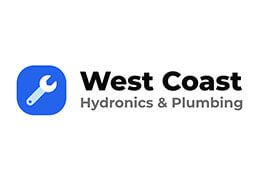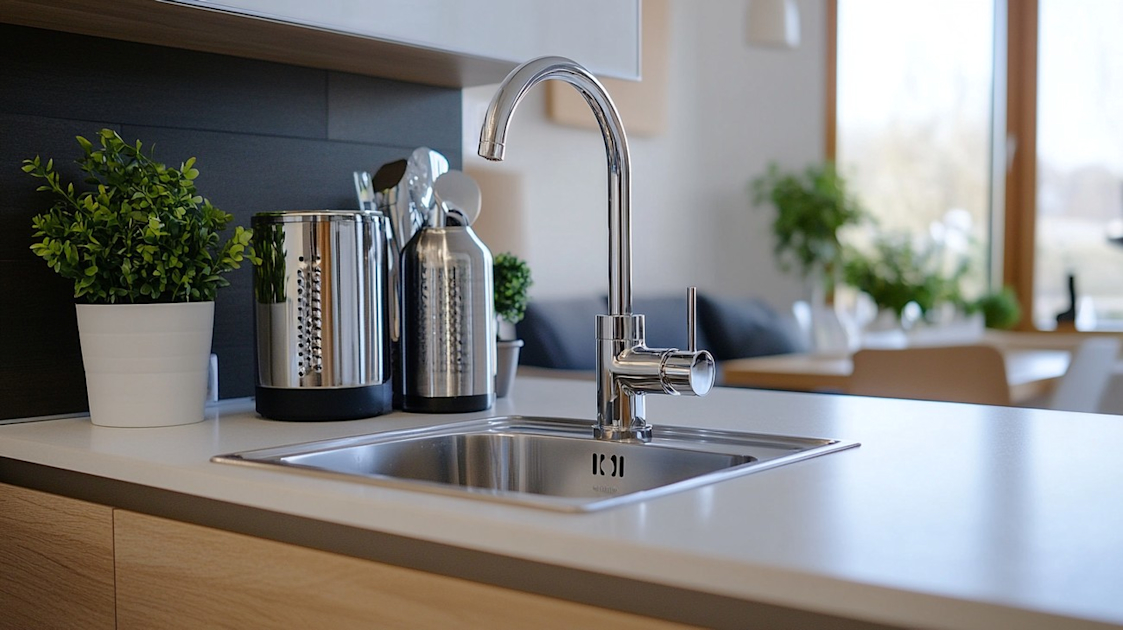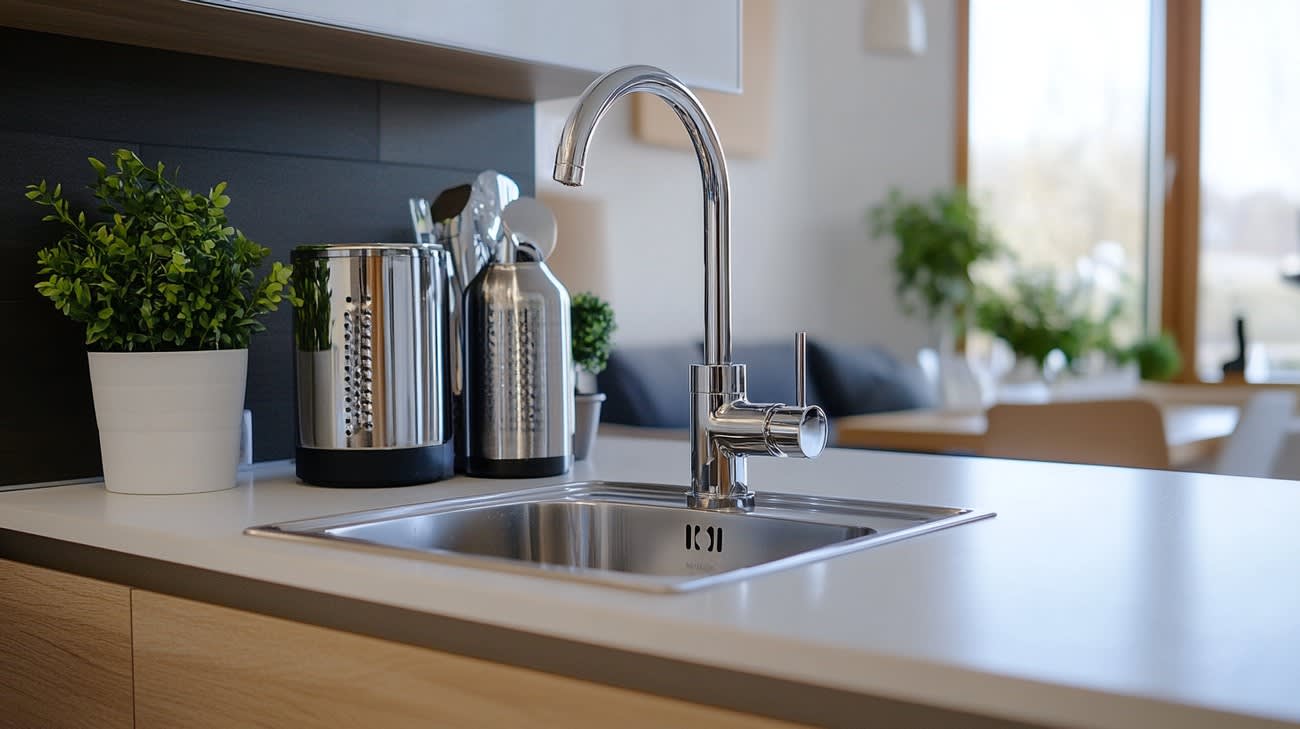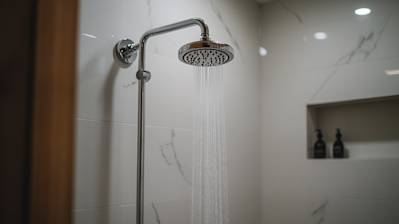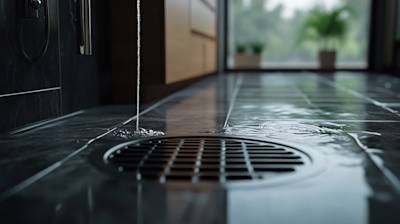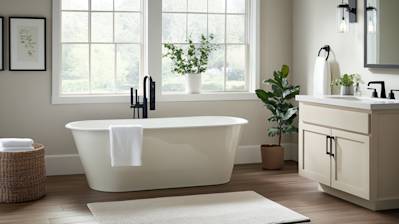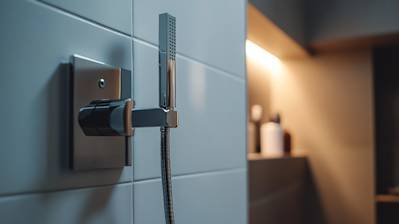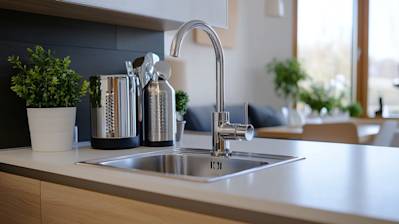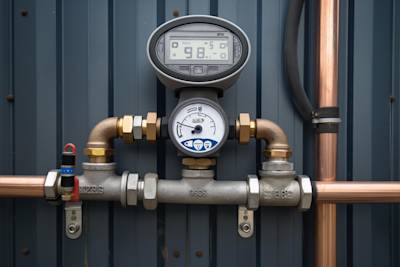Clean, pure water is a fundamental need for all of us. It hydrates us, aids in cooking, and keeps our bodies healthy. However, the regular tap water you get might not be as clean as it seems. Hence, investing in a water filter for a sink can be a tremendous beneficial feat for health and taste. This article explores in great detail everything you need to know about sink-mounted water filters.
Importance of Faucet Water Filters
Not all water sources are created equally. The water from your tap might appear clean, but on a microscopic level, it could be swarming with harmful contaminants. That's where faucet-mounted filters come into play. By investing in a water filter, you can ensure that these harmful substances are removed, providing you with safe, clean water every time you turn on your tap.
Faucet water filters combat:
- The presence of heavy metals such as lead and mercury
- Waterborne bacteria and microorganisms
- Pesticides and pharmaceutical residues
- Volatile organic compounds
- Chlorine and chlorine by-products
- Sediment
Health Benefits of Using a Faucet Water Filter
Choosing a tap water filter has a plethora of health benefits. Here's a look at some of the key benefits:
- Lead Reduction - Lead consumption can lead to severe health issues. Faucet water filters help in reducing lead content in your tap water, making it safer for consumption.
- Hydration - Filtered water often tastes and smells better, encouraging you to drink more and stay hydrated.
- Digestive Health - Clean water promotes better digestion by aiding the absorption of nutrients.
Choosing the Right Water Filter for Your Sink
When shopping for a sink water filter, several features are essential to consider which include filter longevity, contaminant removal, cost, and installation process. Keep these points in mind while selecting a product to get the best water filter for your sink.
Type of Water Filters
There are various types of sink water filter systems available:
- Activated Carbon Filters - They remove organic compounds, chlorine, and improve the taste of drinking water.
- Reverse Osmosis Filters - These are useful in removing heavy metals, minerals, and other dissolved solids.
- Ultraviolet Filters - They function by using UV light to kill bacteria and microorganisms.
Filter Longevity
The life span of filters varies depending upon the brand and technology used. It's beneficial to opt for a filter that has a longer lifespan and requires less frequent change.
Contaminant Removal
Ideally, a water filter should be capable of eliminating or reducing all types of possible contaminants. It's advisable to seek a product that offers broad-spectrum filtration against pollutants.
Installation Process
Your sink water filter shouldn't require a plumber to install. Many water filters for sinks come with DIY installation kits that can have you set up in minutes.
Installation of a Water Filter for Sink
While different brands may have unique installation processes, these steps will generally walk you through the basics of installing a water filter on your sink.
- Choose the right spot on your faucet where the filter system will be attached.
- Remove the existing aerator from the faucet.
- Depending on the design of your chosen water filter system, connect it to the faucet either directly or using an adaptor.
- Activate the filter according to the manufacturer's instructions.
- Check for leaks and correct if necessary.
Remember, it's essential to replace your sink water filter as per the manufacturer's recommendations to ensure clean, safe drinking water at all times.
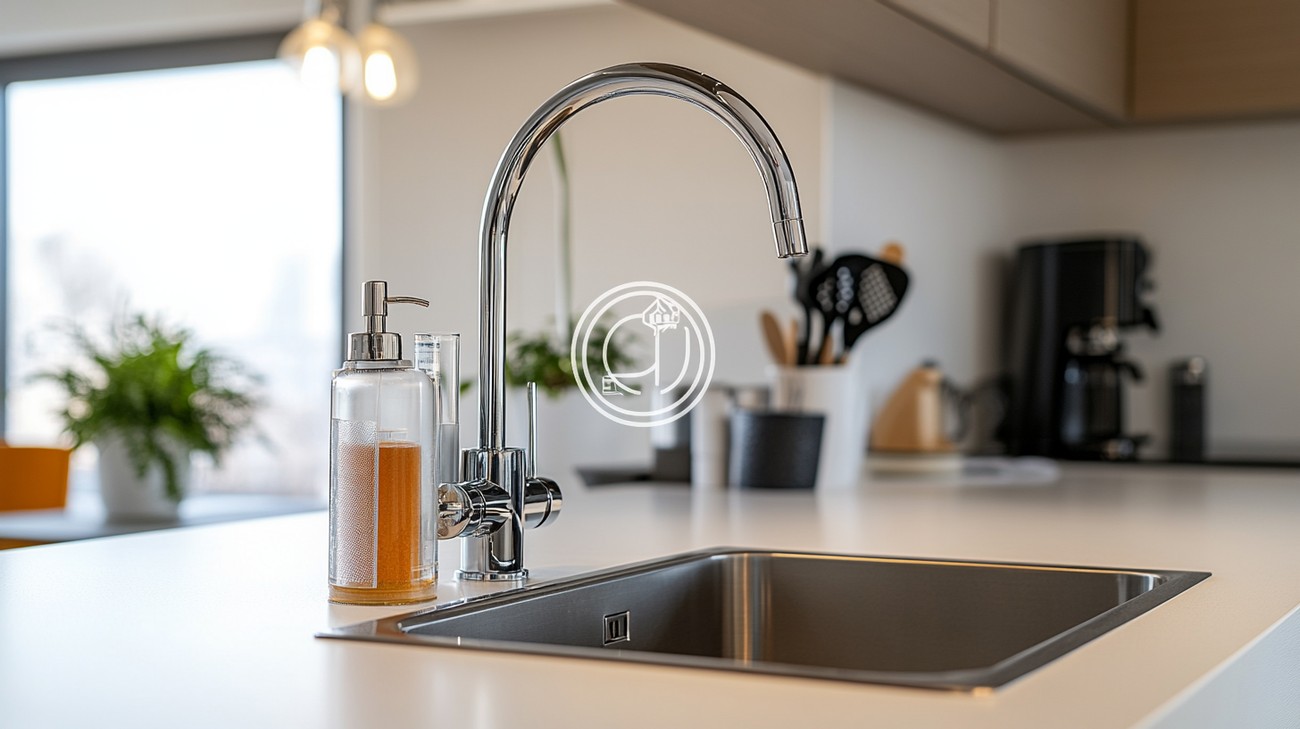
Frequently Asked Questions about Water Filter For Sink
How Do Water Filters for Sinks Work?
Sinks water filters usually employ various filtration technologies to eliminate contaminants from water. The most common technology is activated carbon filtration, which uses activated carbon granules acting like a sponge soaking up impurities. Some others use ion-exchange, mechanical filtration, or reverse osmosis technologies.
Are Sink Water Filters Easy to Install?
Most water filters for sinks are relatively easy to install. They usually come with setup instructions that homeowners can follow without professional help. However, some types of filters may require the expertise of a plumber for precise fitting and installation.
Can a Water Filter for Sink Remove All Impurities?
While good quality sink water filters can remove a significant amount of impurities in your water, they can’t entirely eliminate all contaminants. Certain substances like some bacteria, viruses, and specific chemicals might still remain. Thus, it’s crucial to choose a filter that is proven to clear out the targeted contaminants in your water supply.
How Often Should I Replace My Sink Water Filter?
The frequency of replacing your sink water filter largely depends on the type of filter you have and your usage. Typically, most manufacturers recommend changing your filter every six months to one year. Make sure to check the manufacturer's guidelines for specific instructions.
What Kind of Maintenance Does a Sink Water Filter Require?
Besides regular cartridge replacement, sink water filters may require minimal maintenance such as cleaning. Some filters also feature washable and reusable parts, which might need regular cleaning.
How Much Does a Sink Water Filter Cost?
The cost of water filters for sinks varies greatly depending on the brand, type, and filtration technology. Standard under-sink filters usually range from $50 to $400, while reverse osmosis filters can cost up to $1,200. Remember, there'll also be ongoing costs for filter replacements.
Will a Water Filter for Sink Affect Water Pressure?
Certain types of sink water filters can slightly reduce your water pressure, mostly because they take time to process and filter the water. If maintaining strong water pressure is a priority for you, it would be best to look for a high-flow water filter system.
Is the Water from a Sink Filter Safe to Drink?
Yes, the water from a sink water filter should be safe to drink. The purpose of these filters is to remove harmful contaminants to provide you with clean, safe, and great-tasting water for your consumption.
Can I Use a Water Filter for Hot Water?
Generally, sink water filters are designed for use with cold water. Using them with hot water may damage the filter and reduce its efficiency. However, certain specific models are designed to accommodate hot water, so it's best to check the product specifications.

Pros of a Water Filter for Sink
Improved Water Quality
Removal of Contaminants
Water filters for sinks are highly effective in removing various contaminants from tap water. They can filter out harmful substances such as lead, chlorine, and certain types of bacteria and viruses.
Reduction of Limescale
Some water filters can also reduce limescale, a hard, chalky deposit of calcium carbonate that can build up on sinks and kitchen appliances. By reducing limescale, the water filter helps maintain the cleanliness and efficiency of your sink and other appliances.
Health Benefits
Lower Risk of Illness
With a water filter for your sink, you can lower your risk of waterborne diseases. This is particularly important if your tap water source is unreliable, contaminated, or heavily treated with chemicals.
Nutrient Retention
Unlike some water purification methods, certain water filters do not remove essential minerals. These minerals are beneficial for health, helping you maintain your nutrient intake directly from your tap water.
Economical
Cost-Effective
Once installed, a sink water filter can provide a cost-effective form of water purification. The cost of buying filtered water bottles in the long run is significantly higher compared to using a water filter for your sink.
Reduced Plastic Waste
Since a water filter eliminates the need for buying bottled water, it can help reduce plastic waste and be a more environmentally friendly option.
Convenience
Easy Access to Clean Water
Simply turn on your faucet, and the water filter immediately begins to work, providing you with clean, fresh water without the need for separate filtering devices or processes.
Easy Installation and Maintenance
Most sink water filters are easy to install and require minimal maintenance. Some only need their filters changed every few months.
Cons of a Water Filter for Sink
Installation and Maintenance Costs
Initial Setup Costs
While water filters offer cost savings over time, the initial setup can be pricey. Higher-end models, in particular, require a substantial upfront investment.
Recurring Filter Replacement Costs
In addition to setup costs, owners will need to periodically replace filters, which can be another recurring expense.
Space Occupation
Takes Up Space
Water filters can take up quite a bit of space under the sink, which might make it inconvenient, especially for those with smaller kitchens.
Limited Filtration Capabilities
Not All Contaminants are Removed
While water filters eliminate many contaminants, they do not eliminate all. Some substances, such as certain bacteria, viruses, and heavy metals, may not be fully removed.
Limited Water Output
Slowed Water Flow
Some sink water filters may slow down the water flow from your faucet.
Potential Leaks
Possible Damage
Like any plumbing device, a sink water filter can sometimes leak. This can cause water damage in the area under your sink. This usually isn't a problem with proper installation and maintenance, but it is a possibility to keep in mind.
Specific to Location
Not Useful for Whole House
A sink water filter only purifies the water at the specific sink where it is installed. If you want filtered water from all water outlets in your house, you might need to consider a whole-house water filter system, which will be more costly.

The Myths and Misconceptions about Water Filters for Sinks
When it comes to health and safety, many people have misconceptions about various equipment and appliances intended to improve the quality of life. One such case is the water filter for sinks. This essential tool helps filter out impurities and hazardous substances from our tap water, thus making it safer for drinking and cooking. Let's delve into some of the widespread myths and misconceptions surrounding sink water filters and debunk them with actual facts.
The Myth of Natural Water Purity
The Fallacy of Water Purity from Natural Sources
One widely-spread myth about water is that if it's from a spring, well, or any other natural source, it's pure and doesn't require filtration. Although it's true that some natural sources can provide safer water than water from industrialized sources, it's still vulnerable to contaminants like bacteria, parasites, and other unwanted substances.
The Belief that Rainwater is Pure
Rainwater is another source often considered pure. However, rainwater collects pollutants and contaminants as it falls through the atmosphere. While it may look clean, it can have dirt, dust, pollen, mold, and other pollutants, making filtration necessary before usage.
The Myth of Boiling Water as a Complete Purification Method
The misconception that Boiling Solves Everything
Many people believe that boiling water is enough to make it safe for drinking. While boiling kills bacteria and parasites, it does not remove chemical contaminants, heavy metals, or other substances that may be harmful. This is where a water filter comes into play for complete purification.
The Myth about Water Filters Removing Essential Minerals
Misunderstanding about Mineral Elimination
A common misconception about water filters for sinks is that they remove beneficial minerals from the water, leaving it “dead” or “distilled”. Most high-quality water filters are designed to retain essential minerals while filtering out harmful contaminants.
The Myth of One-filter-fits-all
Universal Filter Misconception
A common misunderstanding is believing all water filters are the same - "a filter is a filter". However, different filters have varying levels of filtration based on the design and the technology involved. For instance, carbon filters are good at improving taste and odor by removing chlorine, while reverse osmosis filters help remove a broad spectrum of contaminants including heavy metals.
The Myth that Bottled Water is Safer than Filtered Tap Water
Bottled Water vs Filtered Tap Water
In the face of plastic pollution, many people still believe that bottled water is safer than filtered tap water. However, studies show that bottled water can contain microplastics and other contaminants. On the other hand, a good water filter can remove these contaminants and provide safer drinking water straight from your tap.
The Myth of No Need for Filter Change
The Misbelief in Eternal Filter Life
Believing water filters don’t require change or maintenance is a considerable misconception. Over time, the filter media gets clogged with contaminants and lose their effectiveness if not replaced at scheduled intervals.
Understanding the truth about water filters can ensure we make informed decisions about our water consumption, ultimately improving our health and well-being. Remember, misinformation and misconceptions are likely to affect the quality of our lives negatively when it comes to essentials like drinking water. Be aware, stay informed, and stay hydrated!
Summary
To sum it all up, a water filter for sink is no longer a luxury but a necessity. It provides an effective way to clean your tap water, making it safe for drinking, cooking, and all other domestic uses. These units are easy to install, affordable, and provide a great way to ensure that you're drinking healthy, fresh and clean water.
Taking into consideration the undeniable health advantages, as well as the ease and cost-effectiveness, a water filter for sink is a smart, practical solution for any household. It relieves one from the constant expense and environmental impact of bottled water. More than that, you're investing in your family's health by removing harmful substances that may be found in your tap water.
Final thoughts on this, a water filter for sink offers a simple solution to a complex problem. In a world where water contamination is a real issue, it presents an efficient line of defense. They're an excellent way to keep your water safe and can benefit everyone, from those living in areas with known water quality issues to those simply wanting to improve the taste of their tap water.
About West Coast Hydronics & Plumbing
At West Coast Hydronics & Plumbing, we are more than just a Sacramento-based plumbing company. We are a tight-knit group of skilled professionals devoted to delivering top-notch hydronic heating and plumbing services. For years we've called Sacramento, CA our home, and we're committed to serving the local community with unparalleled professionalism, speed, and precision. Whether it's a minor residential issue or a significant commercial project, we've got you covered. After all, being the best in the business means getting every job done right, no matter the scale!
